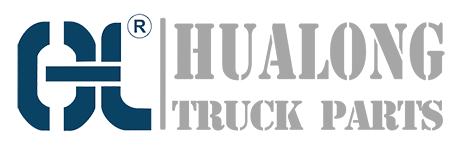buy hydraulic cylinders - The Ultimate Guide
Hydraulic cylinders are an essential component in many industries, providing the power and force required for various applications. Whether you are in construction, agriculture, or manufacturing, finding the right hydraulic cylinder for your needs is crucial. In this comprehensive guide, we will walk you through everything you need to know before you make a purchase.
1. Understanding Hydraulic Cylinders
Before diving into the specifics, it's important to have a basic understanding of hydraulic cylinders. These mechanical devices are used to convert hydraulic power into linear motion and force. They consist of a cylindrical barrel, a piston, and a rod. When hydraulic fluid is forced into the cylinder, it pushes the piston, which in turn moves the rod, creating the desired motion.
2. Types of Hydraulic Cylinders
There are several types of hydraulic cylinders available, each designed for different applications. The most common types include single-acting cylinders, double-acting cylinders, telescopic cylinders, and tie-rod cylinders. Single-acting cylinders exert force in one direction, while double-acting cylinders can exert force in both directions. Telescopic cylinders are used when a long stroke is required in a confined space, and tie-rod cylinders are known for their durability and strength.
3. Factors to Consider
When purchasing hydraulic cylinders, there are several factors to consider to ensure you make the right choice. These include the application requirements, operating pressure, temperature range, mounting options, and environmental conditions. It's important to thoroughly evaluate these factors in order to select a cylinder that will perform optimally in your specific situation.
4. Sizing and Specifications
Proper sizing and specifications are crucial when buying hydraulic cylinders. The size of the cylinder should be chosen based on the force requirements of your application. Specifications to consider include bore size, rod diameter, stroke length, and mount type. It's always recommended to consult with a hydraulic expert or refer to manufacturer guidelines to accurately determine the right size and specifications for your needs.
5. Quality and Durability
Investing in high-quality hydraulic cylinders is essential to ensure longevity and reliable performance. Look for cylinders made from durable materials such as steel or aluminum. Consider factors such as seal quality, corrosion resistance, and overall construction. By choosing a reputable manufacturer with a track record of producing reliable products, you can be confident in the durability and longevity of your hydraulic cylinder.
6. Maintenance and Service
Maintaining and servicing hydraulic cylinders is crucial to extend their lifespan and prevent unexpected failures. Regular inspections, lubrication, and seal replacements are essential maintenance tasks. It's important to follow manufacturer guidelines and consult with experts to ensure proper maintenance practices. Additionally, having access to a reliable service provider who can assist with repairs and replacements is important for the long-term performance of your hydraulic cylinder.
7. Cost Considerations
Cost is an important factor to consider when purchasing hydraulic cylinders. While it may be tempting to opt for the cheapest option, it's essential to weigh the cost against the quality and performance of the cylinder. Investing in a high-quality cylinder may involve a higher upfront cost, but it can save you money in the long run by reducing downtime and minimizing the need for frequent repairs or replacements.
8. Warranty and Support
When buying hydraulic cylinders, it's important to consider the warranty and support offered by the manufacturer. A comprehensive warranty ensures that you are protected against any manufacturing defects or premature failures. Additionally, having access to reliable customer support can provide peace of mind, knowing that you can seek assistance and guidance whenever needed.
9. Buying Options
There are various buying options available when it comes to hydraulic cylinders. You can choose to buy directly from manufacturers, authorized distributors, or online marketplaces. Each option has its own advantages and disadvantages. Buying from manufacturers or authorized distributors provides assurance of quality and authenticity, while online marketplaces may offer a wider range of options and competitive pricing. Consider your specific requirements and preferences when deciding on the best buying option for you.
10. Conclusion
Buying hydraulic cylinders requires careful consideration and evaluation of various factors. Understanding the different types, sizing, specifications, and quality aspects is crucial to make an informed decision. By taking into account the factors discussed in this guide, you can confidently select the right hydraulic cylinder that meets your application requirements and provides reliable performance for years to come.

